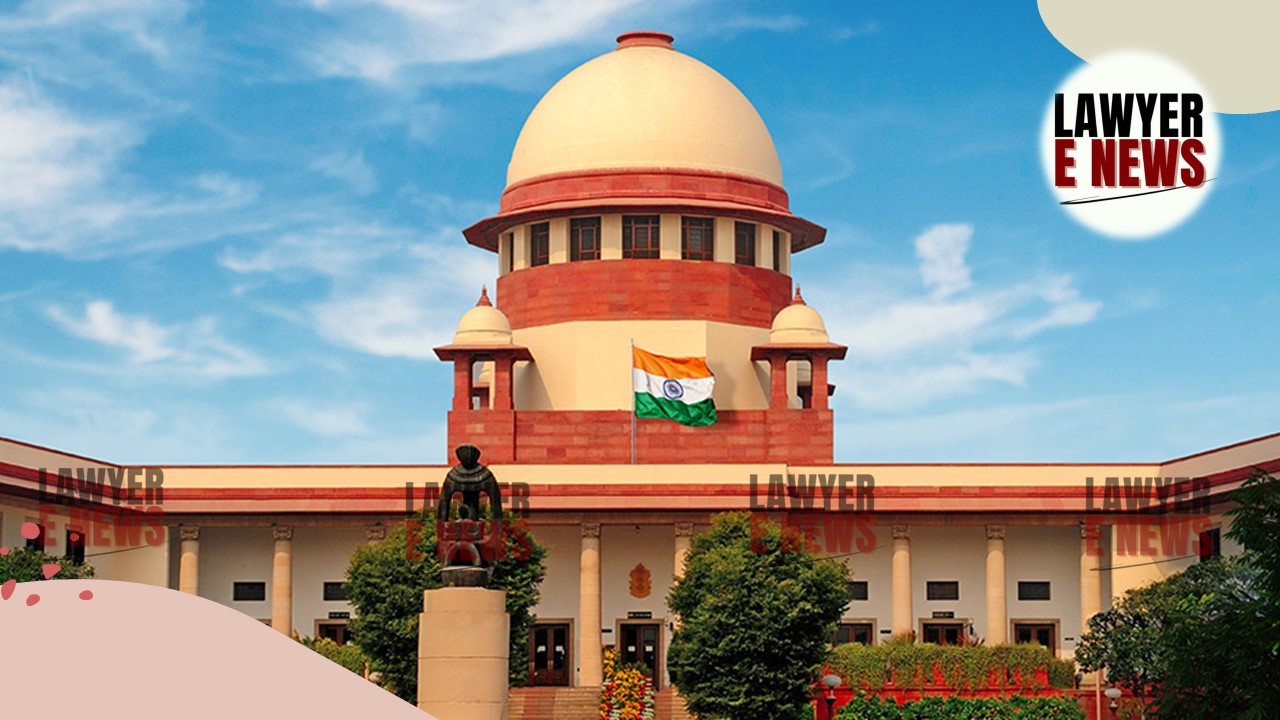-
by Admin
15 February 2026 2:36 AM



Supreme Court of India delivered a crucial judgment emphasizing the need for judicial scrutiny of settlements in cases involving serious offenses. The Court set aside a Gujarat High Court order quashing a charge sheet based on a purported settlement between the accused and the victim in a case of rape and atrocities under the SC/ST Act. The judgment directed the High Court to conduct a thorough inquiry into the genuineness of the settlement, considering allegations of coercion and procedural irregularities.
The appellant, an illiterate woman, lodged an FIR against the accused under Sections 376(2)(N) and 506 of the IPC and Sections 3(1)(R), 3(1)(W), and 3(2)(5) of the SC/ST Act. A charge sheet was filed following the investigation. The accused moved the Gujarat High Court for quashing the criminal proceedings, claiming a settlement with the appellant. The High Court quashed the charge sheet and directed the appellant to refund compensation received under the SC/ST Act. Aggrieved by this decision, the appellant approached the Supreme Court.
The appellant challenged the authenticity of the settlement, alleging that affidavits bearing her thumb impression were obtained under suspicious circumstances. She contended that the High Court quashed the proceedings without verifying the settlement’s genuineness, despite discrepancies in the affidavits, including one in English, a language she could not comprehend.
Genuineness of Settlement: The Court emphasized that in cases involving serious offenses, particularly against women, courts must independently verify the genuineness of settlements. Affidavits alone cannot suffice, especially when the victim is illiterate or vulnerable.
Procedure Followed by the High Court: The Court noted that the High Court quashed the charge sheet without securing the victim’s personal presence or confirming her informed consent.
Justice Abhay S. Oka observed that affidavits filed by the appellant lacked endorsements confirming that their contents were explained to her. Highlighting the gravity of the offenses and the appellant’s illiteracy, the Court held that the High Court should have summoned the victim, either in person or via video conferencing, to ascertain the settlement’s authenticity.
The judgment also pointed out procedural lapses, including inconsistencies in the affidavits’ execution. For instance, affidavits purportedly executed in different languages and locations on the same day raised doubts about their validity. The Supreme Court criticized the High Court for relying solely on these documents without verifying the appellant’s claims of coercion and fraud.
The Supreme Court remanded the case to the Gujarat High Court, directing it to summon the appellant and conduct an inquiry to determine:
Whether the settlement was genuine and voluntary.
If the affidavits were executed after fully informing the appellant of their contents.
The Court authorized the High Court to appoint a judicial officer to investigate the circumstances under which the affidavits were signed. It further clarified that if a settlement is established, the High Court must decide whether the charges merit quashing, considering the offense's societal impact.
"In serious offenses, especially against women, courts must ensure that settlements are genuine and voluntary. Affidavits by illiterate victims require heightened scrutiny, and the victim’s personal presence is essential to verify consent."
The Supreme Court’s judgment in XYZ v. The State of Gujarat & Anr. underscores the judiciary's responsibility to protect vulnerable victims and ensure procedural fairness in cases involving serious crimes. By mandating a thorough inquiry into the authenticity of settlements, the Court reinforces its commitment to justice and safeguards against potential misuse of compromise mechanisms in criminal proceedings.
Date of Decision: November 5, 2024
